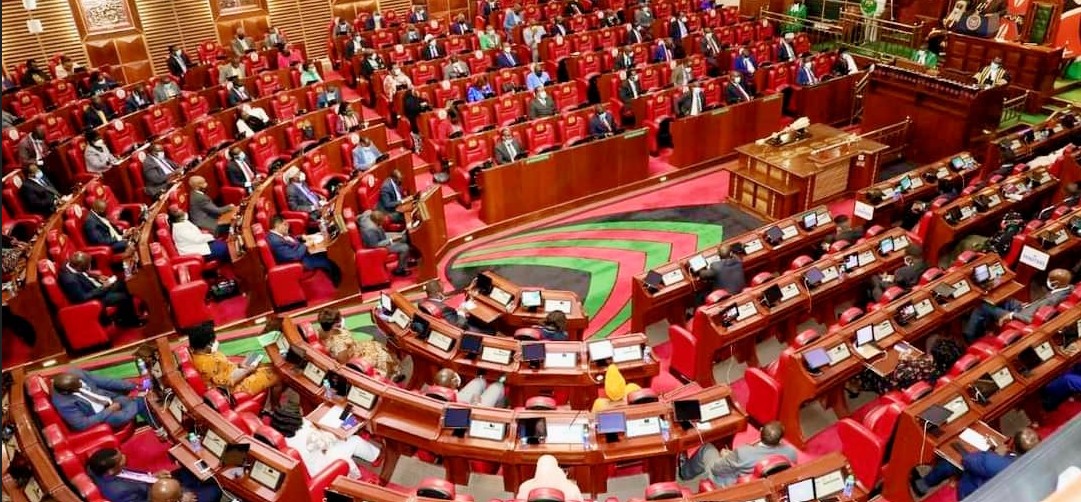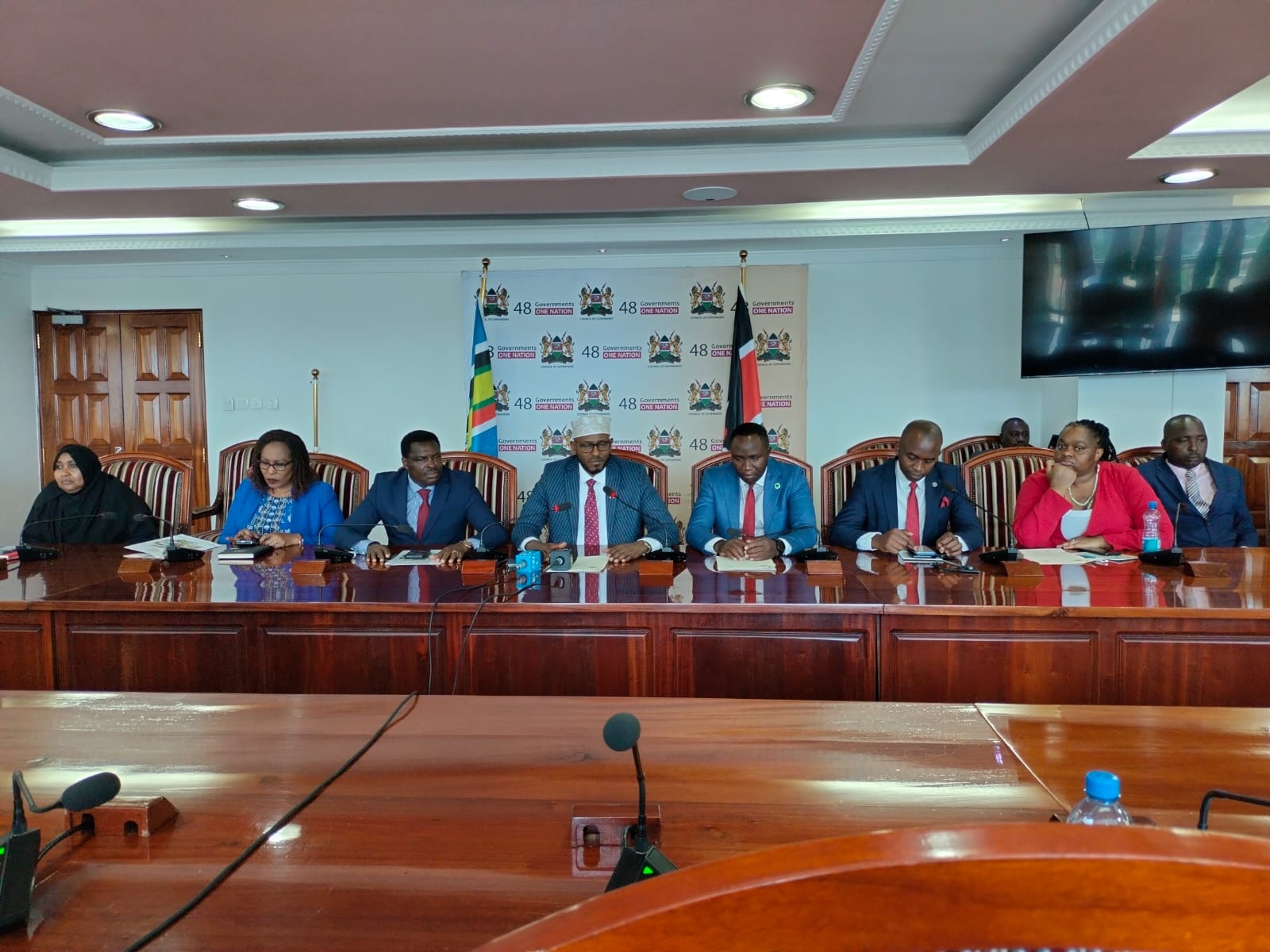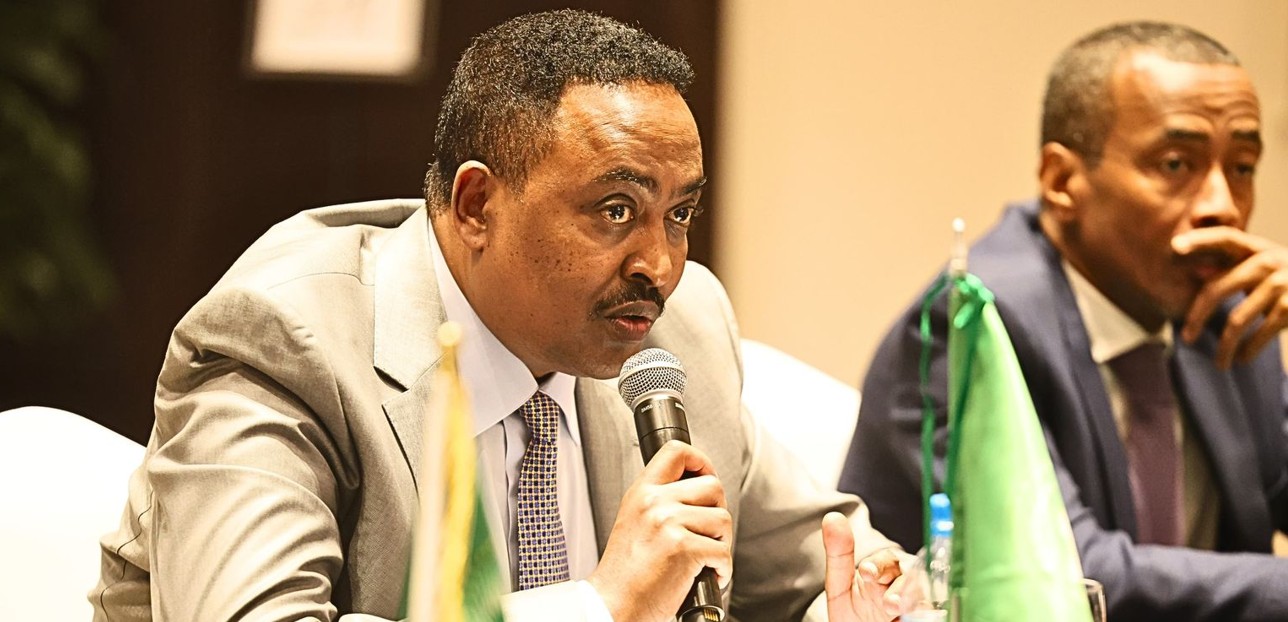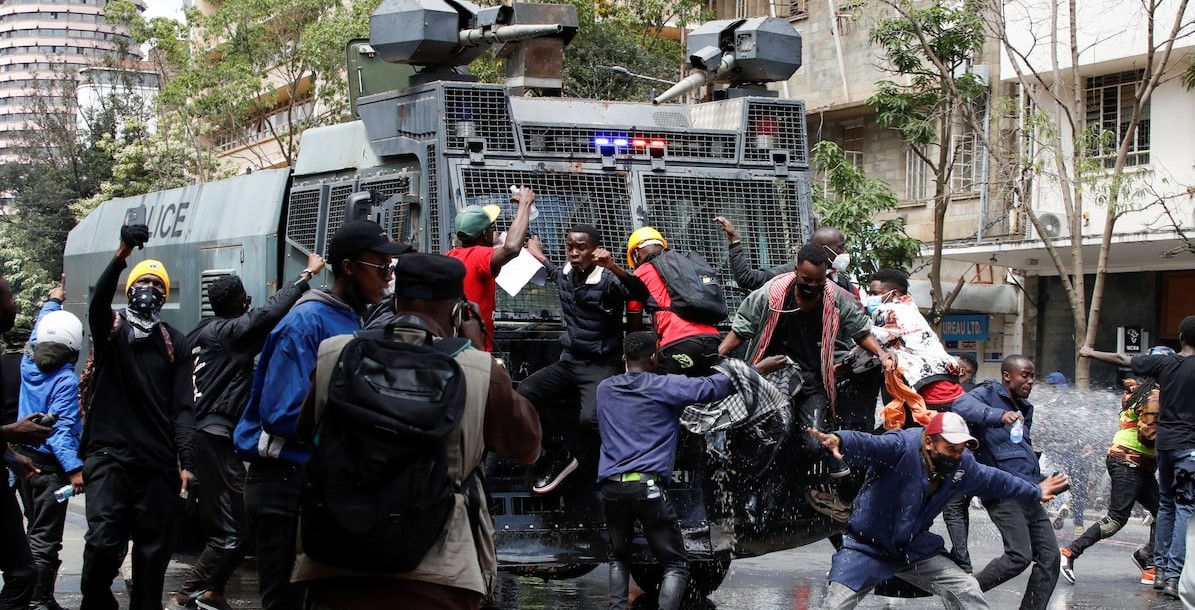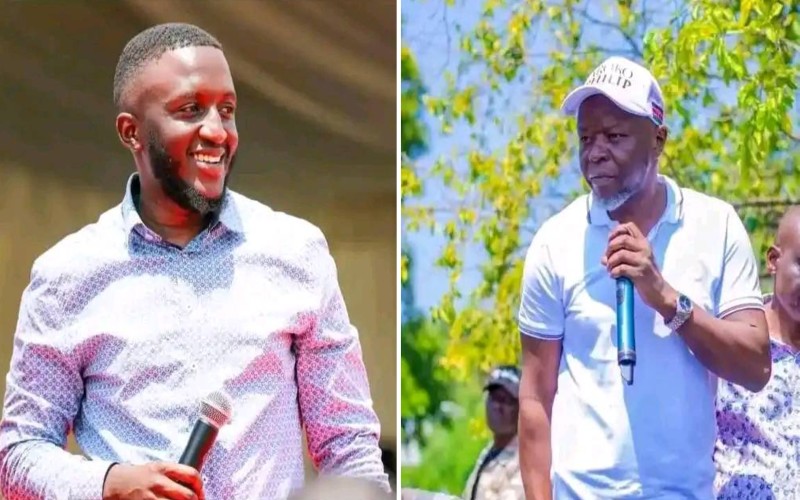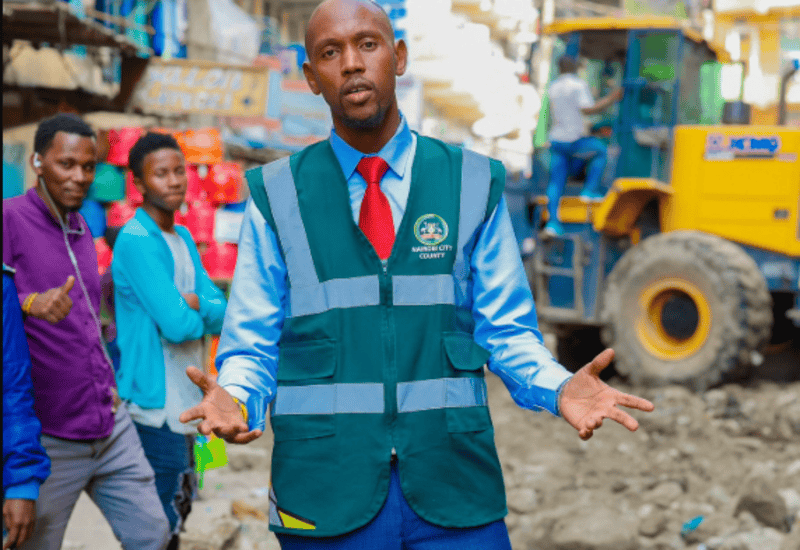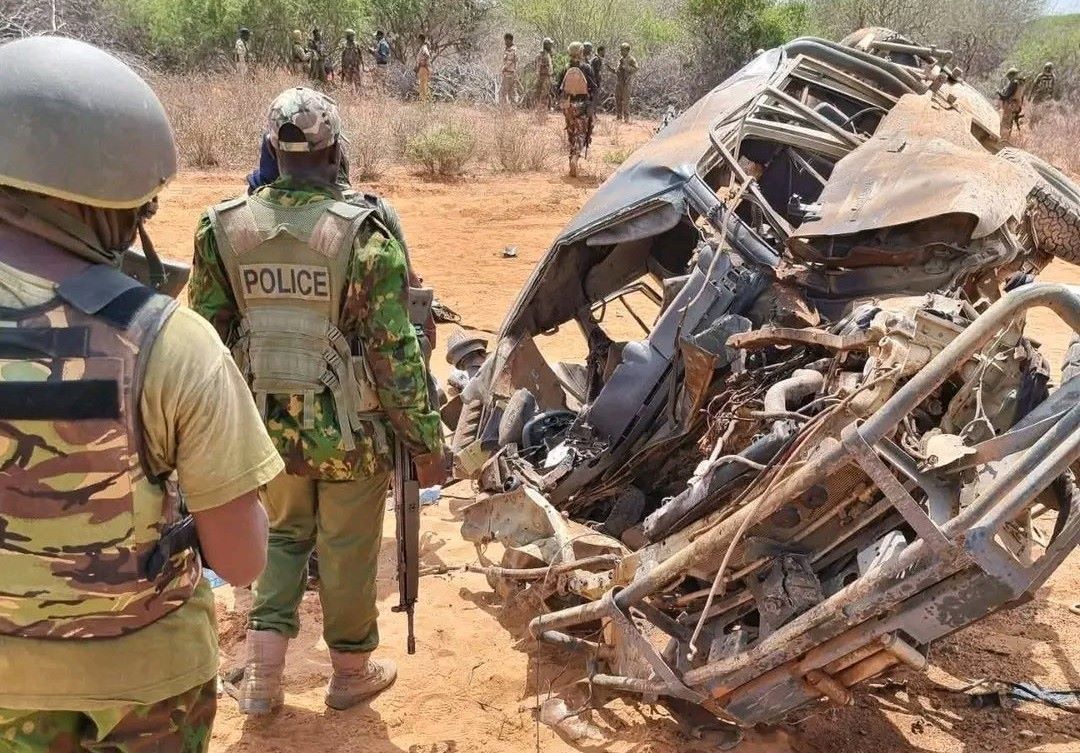Morocco: Gen Z protests turn violent, two killed
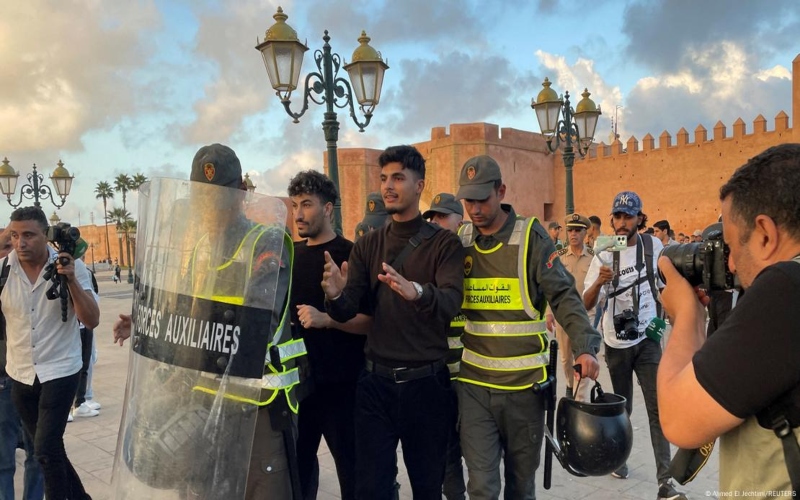
The protests come at a time of popular discontent over Morocco's social inequalities, which have disproportionately affected young people and women.
Anti-government protests over the poor state of public services in Morocco turned violent on Wednesday, with two people killed when officers opened fire on a group of people attempting to "storm" a police station in Lqliaa, near the coastal city of Agadi, state media said.
The group, armed with knives, barged into a security forces facility and set it on fire, forcing security forces to use firearms in self-defence, said local authorities.
More To Read
- UN human rights experts visit Kenya privately amid concerns over crackdowns, civic freedoms
- Kigame seeks court nod for private prosecutions over 2024–2025 protest abuses
- Police to deploy senior investigators as Rex Masai inquest uncovers new witnesses
- Morocco charges 2,480 in Gen-Z protests over poor governance, health and education
- Kenyan quartet selected to officiate at 2025 Africa Cup of Nations in Morocco
- Kenya firms on edge as report flags political unrest as top 2026 threat
A judicial investigation into the incident had been opened, officials said.
It marks a deadly turn in the anti-government protests that initially rallied for social justice reforms.
Morocco's Interior Ministry said that over 400 people had so far been arrested and nearly 300 injured during the rallies.
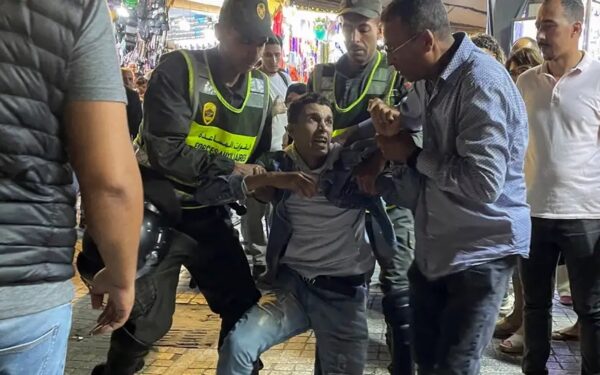 Uniformed and plain-clothed security forces broke up protests across Morocco on Monday. (Photo: Ahmed El Jechtimi via DW)
Uniformed and plain-clothed security forces broke up protests across Morocco on Monday. (Photo: Ahmed El Jechtimi via DW)
Why are young Moroccans protesting?
The protests began on Saturday with demands for better education and health care.
A major complaint is that the North African nation is building stadiums in preparation for hosting the 2030 FIFA World Cup while neglecting public health and education crises.
The demonstrations have been driven by Moroccan Youth Voice and GenZ 212, loosely formed, anonymous youth networks, who put out the call. The groups used platforms including TikTok, Instagram and gaming application Discord to put out a call for protests.
They cited issues such as "health, education and the fight against corruption," while professing their "love for the homeland".
The protests come at a time of popular discontent over Morocco's social inequalities, which have disproportionately affected young people and women.
Morocco's unemployment rate stands at 12.8 per cent, with youth unemployment reaching 35.8 per cent and 19 per cent among graduates, according to the national statistics agency.
The deaths of several women at a public hospital in Agadir, a large city on Morocco's central coast, have swelled public outrage.
Top Stories Today
